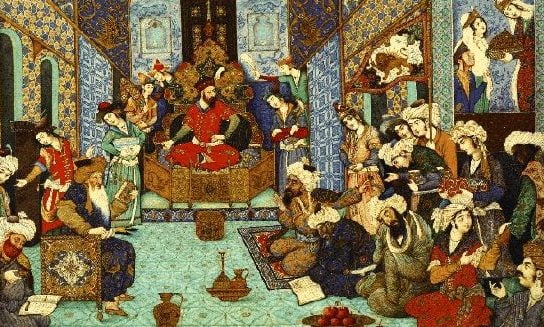But she took care to be present in person, and argued the point with the disappointed and incensed lover with pertinacity equal to his own. She particularly insisted on the Levitical law, which declares, that a woman shall be free of a vow which her parents dissent from. This is the passage of Scripture she founded on:If a man vow a vow unto the Lord, or swear an oath to bind his soul with a bond; he shall not break his word, he shall do acteording to all that proceedeth out of his mouth.“If a woman also vow a vow unto the Lord, and bind herself by a bond, being in her father` house in her youth;And her father hear her vow, and her bond wherewith she hath bound her soul, and her father shall hold his peace at her: then all her vows shall stand, and every bond wherewith she hath bound her soul shall stand.“But if her father disallow her in the day that he heareth; not any of her vows, or of her bonds wherewith she hath bound her soul, shall stand: and the Lord shall forgive her, because her father disallowed her.”—Numbers xxx. 2, 3, 4, 5.
Piece of broken gold
While the mother insisted on these topics, the lover in vain conjured l lie daughter to declare her own opinion and feelings. She remained totally overwhelmed, as it seemed—mute, pale, and motionless as a statue. Only at her mother` command, sternly uttered, she summoned strength enough to restore to her plighted suitor the piece of broken gold, which was the emblem of her troth.On this he burst forth into a tremendous passion, took leave of the mother with maledictions, and as he left the apartment, turned back to say to his weak, if not fickle, mistress, “For you, madam, you will be a world` wonder”; a phrase by which some remarkable degree of calamity is usually implied. He went abroad, and returned not again. If the last Lord Rutherford was the unfortunate party, he must have been the third who bore that title, and who died in 1685.The marriage betwixt Janet Dalrymple and David Dunbar of Bal- doon now went forward, the bride showing no repugnance, but being absolutely passive in everything her mother commanded or advised. On the day of the marriage, which, as was then usual, was celebrated by a great assemblage of friends and relations, she was the same—sad, silent, and resigned, as it seemed, to her destiny.
Read More about Visit Bulgaria Middle Ages History








